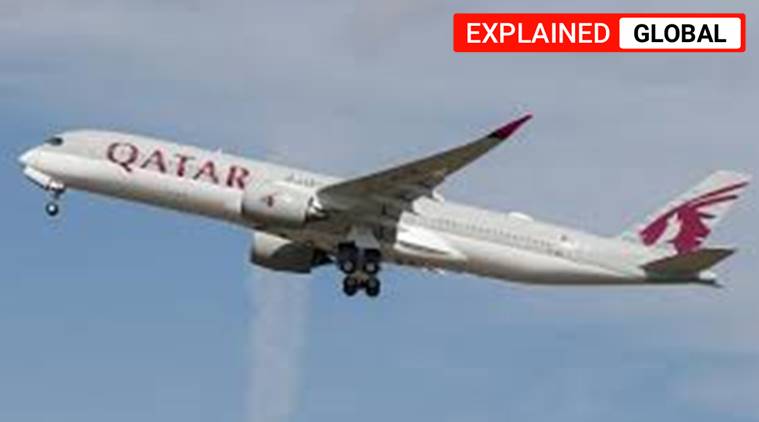Explained: What the latest ICJ ruling means for Qatar and its airspace
In June 2017, Qatar’s neighbours Saudi Arabia, United Arab Emirates, Bahrain and Egypt severed diplomatic and economic ties with it, by shutting off shipping routes and air space.
 While the blockade still remains in force, a ruling by the ICAO in Qatar’s favour next year would mean a major win for the country and its national carrier, Qatar Airways. (Photo: Reuters)
While the blockade still remains in force, a ruling by the ICAO in Qatar’s favour next year would mean a major win for the country and its national carrier, Qatar Airways. (Photo: Reuters)
More than three years after they imposed a sweeping blockade on Qatar, Saudi Arabia and its allies have received a setback from the International Court of Justice (ICJ).
On Tuesday, the top United Nations (UN) court refused an appeal by Bahrain, Saudi Arabia, Egypt and the United Arab Emirates (UAE), which had challenged the authority of the International Civil Aviation Authority (ICAO) to adjudicate on the legality of the air blockade that the four nations have imposed against Qatar. The ICAO is the international aviation agency of the UN.
While the blockade still remains in force, a ruling by the ICAO in Qatar’s favour next year would mean a major win for the country and its national carrier, Qatar Airways.
Qatar’s Government Communications Office (GCO) tweeted, “Since the start of the illegal blockade in June 2017, #Qatar has maintained that the blockading countries have acted illegally and in violation of international law. Today marks another step forward in Qatar’s case against the blockading countries at the @icao”
Since the start of the illegal blockade in June 2017, #Qatar has maintained that the blockading countries have acted illegally and in violation of international law. Today marks another step forward in Qatar’s case against the blockading countries at the @icao. pic.twitter.com/DJj8QcK9OC
— مكتب الاتصال الحكومي (@GCOQatar) July 14, 2020
The Qatar blockade
In June 2017, Qatar’s powerful neighbouring Arab nations of Saudi Arabia, United Arab Emirates, Bahrain and Egypt moved to sever diplomatic and economic ties with Qatar by shutting off shipping routes and air space, over Doha’s alleged support for terrorism across the region and its ties with Iran.
Qatar, however, denies supporting Islamic extremism and has widely condemned the isolation as a clear attack on its sovereignty.
Also Read | Explained: Why are people protesting in Russia’s far-east?
The neighbours then issued a 13-point list of demands for Doha to comply with in order to restore erstwhile relations. Some demands include Qatar closing down news outlets such as Al-Jazeera, sever ties with radical Islamist groups like Muslim Brotherhood, scale down ties with Shia-majority Iran and remove Turkish troops stationed in the country.
Since 2017, the blockade of Qatar has included the closing of its only land border (with Saudi Arabia), stopping Qatari ships from entering ports anywhere in the Saudi coalition, and blocking Qatari planes from flying in their airspace. Qatari citizens were also expelled as part of the measures.
The dispute at the ICJ
Alleging that its rights of free passage under the 1944 Convention on Civil Aviation were violated, Qatar approached the International Civil Aviation Authority (ICAO), the UN aviation body created by that Convention.
📣 Express Explained is now on Telegram. Click here to join our channel (@ieexplained) and stay updated with the latest
At the ICAO, Saudi Arabia and its allies argued that only the ICJ should have the authority to settle the dispute, since it went beyond aviation matters. In 2018, the ICAO ruled against the Saudi coalition, holding that it did have jurisdiction to hear the case.
The four countries then took the case to the ICJ, which on Tuesday backed the ICAO finding 15-1. The ICAO is now expected to deliver its verdict on the air blockade next year, UN News said.
- 01
- 02
- 03
- 04
- 05






































